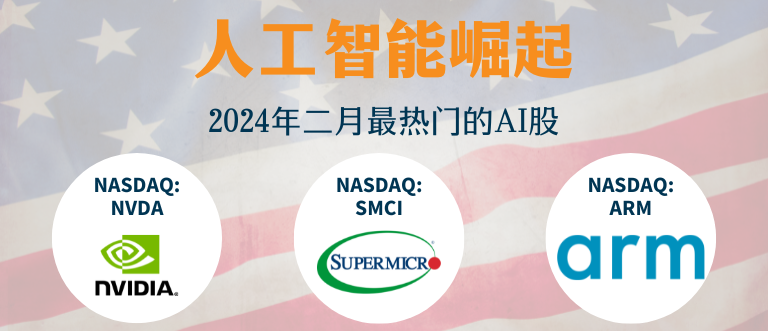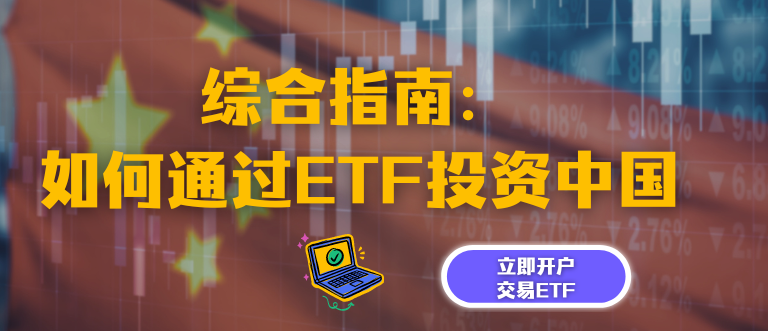Ask Price
Table of Contents
Ask Price
The “Ask Price” is a fundamental element that plays a pivotal role in trading securities, influencing buying and selling decisions. The Ask Price stands as a vital component of the stock market ecosystem, influencing trading decisions and providing valuable insights for investors. By understanding its definition, workings, and significance, market participants can navigate the complexities of buying and selling securities with greater confidence, ultimately contributing to a more informed and efficient market.
What Is the Ask Price?
The Ask Price, also known as the “offer price” or “asked price” is the lowest amount that a seller in the stock market is ready to accept for the sale of a security. It is a crucial component of the bid-ask spread, reflecting the price point at which sellers are willing to part with their shares.
The Ask Price plays a pivotal role in facilitating transparent and efficient trading. Investors keen on purchasing a particular stock must consider the Ask Price, as it represents the entry point into the market. The Ask Price, along with the Bid Price, forms the basis for the bid-ask spread — a key indicator of a security’s liquidity.
Understanding the Ask Price
It signifies the price level at which sellers are ready to execute a trade, providing a benchmark for potential buyers to gauge the cost of acquiring a particular security.
For trading decisions to be well-informed, the Ask Price is essential. When the Ask Price is lower than the investor’s bid price, a transaction can occur, and the investor can acquire the desired security. However, if the Ask Price is higher than the investor’s bid, negotiations may be necessary, or the investor may need to reassess his purchasing strategy.
Navigating the complexities of the markets requires a nuanced understanding of terms like the Ask Price. It serves as a compass for investors, guiding them through the intricate world of buying and selling securities. By staying informed about the Ask Price, investors can make calculated choices that complement both market expectations and their financial objectives.
Working of the Ask Price
The Ask Price is determined by sellers entering the market with sell orders. As these orders are matched with buy orders from interested buyers, the Ask Price may fluctuate based on the supply and demand for the security. Market conditions, investor sentiment, and economic factors all contribute to the dynamic nature of the Ask Price.
When an investor is looking to buy a financial instrument, he must pay the Ask Price to the seller. The Ask Price is set by sellers based on various factors, including market conditions, perceived value, and overall economic indicators. It is important to remember that the Ask Price usually exceeds the Bid Price, creating a spread that represents the cost of entering a trade.
The working of the Ask Price is integral to market efficiency. As buyers and sellers submit their orders, the Ask Price adjusts dynamically based on the supply and demand for the financial instrument. If there is high demand and limited supply, the Ask Price may rise, and vice versa. This constant adjustment ensures that market prices reflect the real-time consensus of market participants.
Investors use the Ask Price to gauge the immediate cost of entering a trade and make informed decisions. Additionally, the Ask Price is crucial for setting limit orders, a predetermined price at which an investor is willing to buy a security. Investors can navigate the market with accuracy thanks to this tactical usage of the Ask Price and execute trades in alignment with their financial goals.
Uses of the Ask Price
Facilitating Trades: The Ask Price serves as a crucial reference point for traders looking to buy a security. It allows them to gauge the cost of acquiring the asset and make informed decisions.
Setting Limit Orders: When establishing limit orders, investors frequently use the Ask Price to indicate the highest price they are prepared to pay for an asset. This strategy helps manage the execution of trades within desired price parameters.
Price Discovery: The Ask Price provides valuable information about the minimum amount a seller is willing to accept for a security. It aids investors in understanding the current market value and facilitates price discovery.
Market Depth Analysis: Ask Prices contribute to assessing market depth, indicating the number of sellers in the market. This insight is crucial for understanding supply and demand dynamics and predicting potential price movements.
Comparative Analysis: By comparing the Ask Prices of similar securities, investors can identify opportunities for arbitrage or gauge market sentiment. This analysis aids in making strategic investment choices.
Examples of Ask Price
Consider a scenario where Company X’s stock has an Ask Price of US$50. This indicates that sellers are willing to part with their shares at a minimum price of US$50. Investors looking to buy the stock must either match this Ask Price or enter a bid higher than US$50 to execute the trade.
One prominent example of the Ask Price in the US market is the tech giant Apple Inc. (AAPL). Suppose an investor is interested in purchasing Apple shares. In this scenario, the Ask Price would be the current price at which a seller is willing to sell Apple shares. This price fluctuates in real-time based on market demand and supply dynamics.
Another example is the e-commerce giant Amazon Inc. (AMZN). Investors keen on buying Amazon shares would encounter the Ask Price when placing an order. The Ask Price is determined by the seller’s expectations and prevailing market conditions
Frequently Asked Questions
A buyer’s maximum Bid Price is what he is willing to spend for a security, and a seller’s lowest acceptable bid is what he is willing to take. The term “bid-ask spread” refers to the variation between them.
The difference between the Ask and Bid prices for a commodity in the market is known as the Bid-Ask spread. A narrower spread often indicates a more liquid market.
The key difference lies in the perspectives, the Bid Price is from the buyer’s viewpoint, representing the maximum he is willing to pay, while the Ask Price is from the seller’s viewpoint, representing the minimum he is willing to accept.
A narrow bid-ask spread suggests a more liquid market with ample trading activity. It may indicate a high level of agreement between buyers and sellers regarding the security’s value.
Ask and Bid Prices are established by market forces, the collective decisions of buyers and sellers. Real-time influences on these prices include supply and demand, market mood, and economic data.
Related Terms
Most Popular Terms
Other Terms
- Options expiry
- Adjusted distributed income
- International securities exchanges
- Settlement currency
- Federal funds rate
- Synthetic ETF
- Physical ETF
- Notional amount
- Negative convexity
- Jumbo pools
- Inverse floater
- Forward Swap
- Underwriting risk
- Reinvestment risk
- Final Maturity Date
- Payment Date
- Secondary Market
- Margin Requirement
- Mark-to-market
- Pledged Asset
- Yield Pickup
- Subordinated Debt
- Trailing Stops
- Treasury Stock Method
- Stochastic Oscillator
- Bullet Bonds
- Basket Trade
- Contrarian Strategy
- Exchange Control
- Notional Value
- Relevant Cost
- Dow Theory
- Speculation
- Rand cost averaging
- Sustainable investment
- Stop-limit sell order
- Constant prepayment rate
- Covenants
- Companion tranche
- Synthetic replication
- Beneficiary
- Reverse stock splits
- Quiet period
- Prepayment risk
- Interpolation
- Homemade leverage
- Hyperdeflation
- Hope Credit
- Prime bank investments
- Purchasing power
Know More about
Tools/Educational Resources
Markets Offered by POEMS
Read the Latest Market Journal

本文旨在为中级外汇交易者提供必要的信息和知识。它将涵盖我们上一篇文章 “五分钟看懂世界上最活跃的市场-外汇差价合约(FX CFD)...

解锁台湾股市的投资潜力!深入了解由强大的技术驱动型经济推动的股票市场,2023 年机械和电气设备将占出口的 69%。在政治稳定、投资者友好的法规和健全的法律框架下,探索台积电和富士康等全球顶级企业。台湾股市值得称赞的历史表现和在国际贸易中的的重要性使其更具吸引力。在这个科技实力雄厚、经济稳定、充满活力的股票市场中,抓住增长机遇!

了解外汇市场 外汇交易市场又称外汇市场,是一个买卖货币的全球性金融市场。它是全世界规模最大、流动性最强的金融市场,每日交易量超过 6 万亿美元。但外汇市场有一个重要却常被忽视的一点,就是它受交易心理的影响。在本文中,我们将探讨外汇市场的复杂性,还有把重点放在交易心理与传统交易策略共同发挥的关键作用...

五分钟看懂世界上最活跃的市场 -外汇差价合约(FX CFD)
外汇交易市场俗称外汇或外汇市场,是全球金融市场的支柱。它是世界上最活跃的市场,2022 年 4 月,全球交易额达到创纪录的每天 7.5 万亿美元[1] 。这个活跃的市场为交易者提供了利用货币价格波动赚取利润的机会。在本文中,我们将解释外汇市场的基本原理,助您了解其投资机制。 什么是外汇? 外汇市场是一个分散的全球市场,世界上所有货币都在这里进行交易...

随着通胀数据趋向 2% 的理想目标,人们普遍乐观地认为,在任何可能的降息之前,市场都不会受到不利影响。以下是美股市场2024年的一些重要事件,投资者在做出投资决策时可以参考留意。

根据《东南亚态势报告:2023》,失业和经济衰退是当前东南亚面临的主要挑战。各国采取了各种政策和措施以恢复经济,尽力摆脱新冠疫情的影响。尽管如此,越南在经济和社会方面展现出了令人满意的复苏迹象,经济增长逐季上升,成为世界经济的亮点之一。虽然全年GDP增速放缓至5.05%,低于政府6.5%的目标,但越南仍然是地区和世界经济增速较快的国家之一。






















